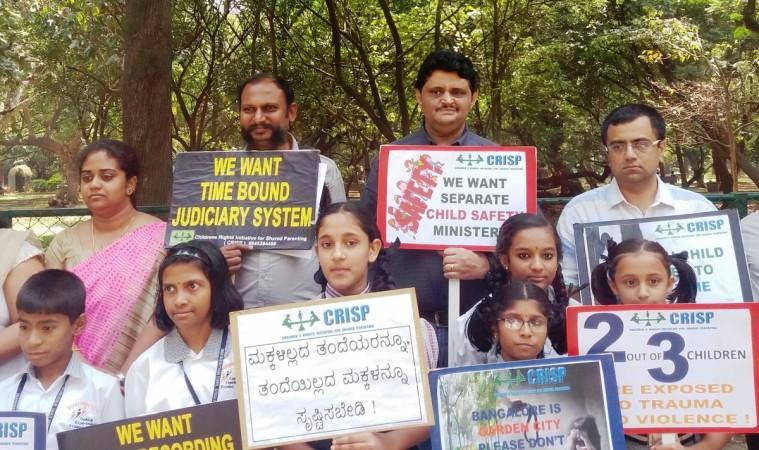
Manjula V has not seen her now teenaged daughter for three years, despite having obtained her custody from court. The PhD student who is looking to become a psychologist was herself alien to the concept of parental alienation, and woke up to it only after her daughter, who went to live with her father in 2013 at the age of 12, started shunning her and accusing her of things that could have been said only by adults.
Manjula's case is one of the many on the basis of which Bengaluru-based NGO Childrens' Rights Initiative for Shared Parenting (CRISP) is demanding, among other things, a separate ministry for children, as well as faster disposal of cases in family courts and shared parenting being made mandatory.
CRISP president Kumar Jahgirdar told International Business Times, India, that the demand for a separate ministry stems from not only the fact that nearly 40 percent of the Indian population are children but also that there is an acute shortage of avenues for them to seek assistance — like a helpline — when there is trouble.
Reminded of the 1098 childline, Jahgirdar was quick to point out: "We want a helpline for children that works round the clock, 24-7. The childline often does not work at night. We want a helpline that will not only work, but do so along the lines of similar services available in foreign countries. We want them to be child-friendly, and that children be taught in schools about them, so they know who to contact if they need to."
Parental alienation
Such a need might occur for children from broken or breaking marriages if one part of the couple resorts to alienating the child from his or her spouse, something Manjula has faced first hand, and recounted back to IBTimes India.
Within six months of sending her daughter to live with the child's father in 2013, Manjula said she felt she was being ignored by her daughter. "You start losing contact. At first, the reasons your child gives is genuine, but you know something is wrong when seeing a film or going out with friends becomes more important than talking to a parent," she said.
And working in a facility that specialises in family psychology, Manjula knows what the effects of parental alienation can be on a child. "If the child's memory of one parent is coloured entirely by what the other parent has told them, they grow up to question their own selves, asking whether they were not precious enough for the parent that they were told 'deserted' them," she explained.
"They also grow up to be untrusted in personal ties, because their upbringing affects how they see people. It often accepts their self esteem, and they are also known to become incapable of having a stable, meaningful and committed relationships," she said.
'Make shared parenting mandatory'
This is where CRISP's other big demand comes in: Making shared parenting mandatory wherever the parents had separated. However, Jahgirdar is quick to point out that this should be the case only when both parents are "fit" — no history of abuse or anything that might affect the child, or no disability of the parents — and if they are in the same city.
"In such cases, the parents should share the cost of bringing up the child, the kid's vacation time should be spent equally with both parents, and they should get to spend the weekend with at least one of the parents," he said.

















